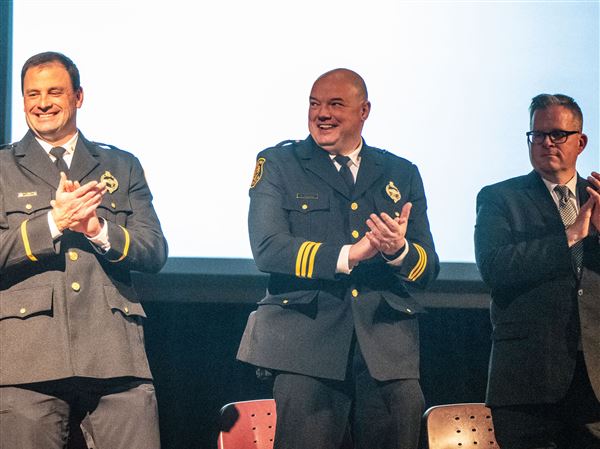
Bill Wade, Post-Gazette
Andrew Warshaver, a Carnegie Mellon University junior, is using Ebay to auction his services as a programmer. The light streaks in the photo were created using a time exposure.
Pittsburgh Post-Gazette
With a 3.88 grade point average at Carnegie Mellon University and a resume jammed with computer programming honors, 21-year-old Andrew Warshaver thinks he would be very valuable to a company looking for a summer intern.
Just how valuable?
Mr. Warshaver has turned to eBay to find out.
On Friday, he posted a picture of himself on the online auction site along with his resume and a note that "you are bidding on 12 weeks worth of my employment."
In the description, he also added that he interned at Google last summer, has taught computer classes at CMU for the past four semesters and that he already has "several competing offers and wanted to find out what I am worth on the free market."
Gary W. Florkowski, a professor at the University of Pittsburgh's Katz School of Business specializing in human resource management, chuckled when he heard about Mr. Warshaver's posting.
"This is a new one," he said, "but I'm not totally surprised by it."
Both employees and employers are using technology to make themselves stand out, he said, noting that the Marines are using MySpace as a recruiting tool and that some companies have announced jobs via podcast.
"Going to eBay is just an extension of a phenomenon gaining more and more popularity," he said. "Companies aren't walking away from classified ads, but they are looking for other sources of recruitment."
This isn't Mr. Warshaver's first experience with eBay -- in high school he used the site to sell an online role-playing game character that he created for $500. But this time, bidders don't get a virtual person; they get the real thing.
The selling of some services is prohibited on eBay, but Mr. Warshaver's posting appears to conform to company policies, said Catherine England, a spokeswoman for eBay. She had never heard of a posting for an internship, but was familiar with other instances of bidding for work-related services.
For his summer services, he set the bidding floor at $2,000 and has received two bids thus far: one for $5,000 and one for $5,100. He's unsure, however, whether they are legitimate offers, or just jokes from his friends.
See Mr. Warshaver's posting at www.ebay.com.
Regardless, he's hoping the bidding goes higher. The offers that he already has in hand for the summer -- both from Wall Street financial firms -- are more in the $15,000 range, he said.
His initial instinct was to play the two firms off each other to maximize his salary. But then, he thought, why not open the market up to other suitors as well.
"The amount of work I put out when I'm productive is far more valuable to them than what they plan on paying me," he said.
Mr. Warshaver is keeping his expectations low about his eBay posting. In the end, he decided not to tell either of the firms that already had offered him jobs about it.
"I thought they might laugh at me," he said. "I don't want to blow those offers away."
Still, in a world where employees -- even college students -- see themselves more as commodities than cogs in the wheel, Mr. Warshaver's eBay model provides food for thought, if nothing else.
It's one sign of the demise of the old "Organization Man" model, and the growth of a "Free Agent Nation." As writer Daniel Pink explained in a 2001 book on the topic, "organizations need individuals more than individuals need organizations."
Judi Mancuso, associate director of Carnegie Mellon's career center, said students today are more open about letting employers know exactly what they want to get out of internships, rather than just serving at a company's beck and call.
Still, a first glance at Mr. Warshaver's eBay posting left her nearly speechless.
"It's definitely not something that I think one of our career counselors would suggest," she said. "However, we do encourage students to look at all avenues to find employment."
Ten years ago, she said, she might have been "appalled" at this particular avenue. These days, "whatever they need to do to feel comfortable. This is a very bright kid and maybe it just shows a very different side of a student."
For Mr. Warshaver, who is also minoring in computational finance, it's just one more economics experiment.
First Published: January 24, 2007, 5:00 a.m.













